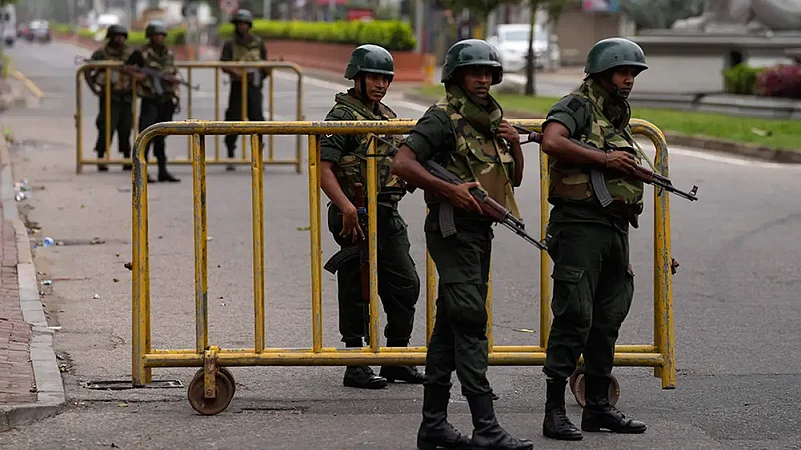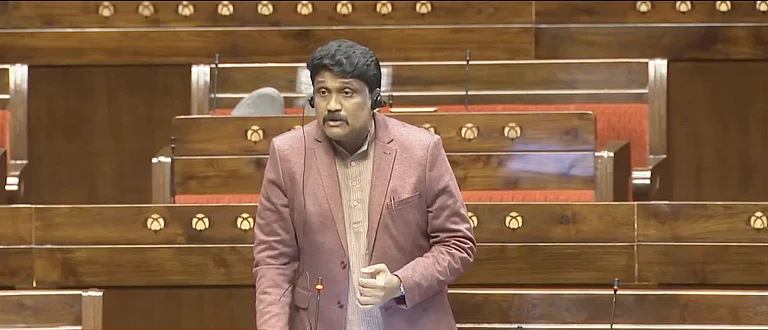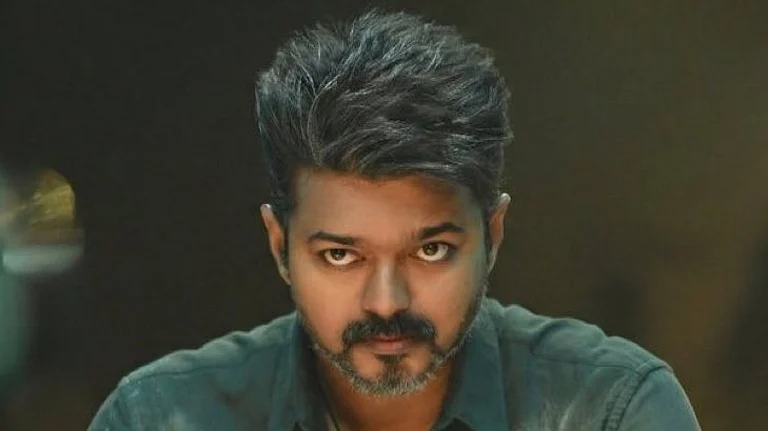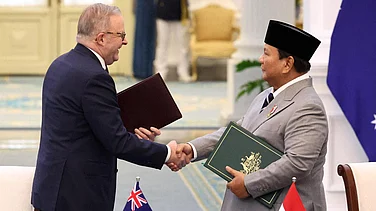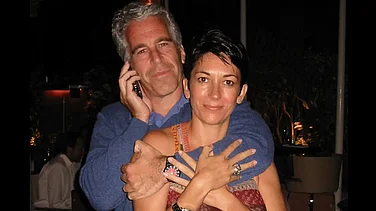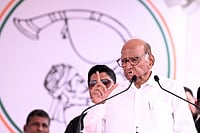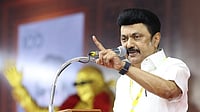Sri Lanka’s main Opposition SJB has split over the choice of the next prime minister as its leader Sajith Premadasa is unwilling to be the prime minister in the interim government under embattled President Gotabaya Rajapaksa.
In a late-night televised address to the nation, the President on Wednesday refused to quit but promised to appoint a new Prime Minister and a young Cabinet this week which would introduce key constitutional reforms to curb his powers, amid protests over the nation's worst economic crisis that ousted his elder brother Mahinda Rajapaksa who is under protection at a naval base following violent attacks on his aides.
The main Opposition Samagi Jana Balawegaya (SJB) split came out in the open when its leading figure Harin Fernando told reporters that he had decided to remain independent of the party.
He said that party leader Premadasa was unwilling to be the prime minister in the interim government.
“This is not a time to put conditions and shirk our responsibility, every passing minute without a government would be disastrous,” Fernando said, adding that he would support any interim prime minister to run the country.
Sri Lanka has been without a government since Monday when Gotabaya's elder brother and prime minister Mahinda Rajapaksa resigned after violence erupted following an attack on the anti-government protesters by his supporters. The attack triggered widespread violence against Rajapaksa loyalists, leaving nine people, including two police officers, dead.
Premadasa has taken the moral ground that he “would not agree to be the prime minister under the corrupt Rajapaksas”, SJB leader Fernando said.
Premadasa would become the prime minister only if President Gotabaya Rajapaksa resigned, he said.
The SJB wrote a four-point letter to the President on Wednesday night.
It included conditions like he should step down during a specified period of time; he should not interfere in the day-to-day running of the government; the Cabinet for the interim government needs to be appointed not at his wish and the executive presidency must be abolished.
If President Gotabaya Rajapaksa would be agreeable, Premadasa would become the prime minister.
The group, which became independent of the ruling coalition that had suggested three names for the premier, said they would agree with the President’s choice.
“The President appoints the person who in his opinion could command the support of Parliament. So let him first make the appointment and we can consider when it reaches Parliament,” Anura Yapa, a legislator of the group, told PTI.
The President, in his address on Wednesday night, said the person who commands parliamentary majority would be appointed the prime minister.
Former prime minister Ranil Wickremesinghe, who met the President on Wednesday evening, is speculated to become the new prime minister of the interim government.
Wickremesinghe has just his seat in the 225-member assembly but reported to have secured the support from a broader section to handle the interim administration.
Mahinda, the 76-year-old Sri Lanka People's Party (SLPP) leader known for his brutal military campaign against the Liberation Tigers of Tamil Eelam (LTTE) during his presidency from 2005 to 2015, resigned on Monday.
He is being protected at the Trincomalee naval base after he was evacuated from his official residence, Defence Secretary Gen (retd.) Kamal Guneratne said on Wednesday.
Mahinda, who served as the country’s prime minister thrice, saw his private residence set on fire on Monday. He, along with his wife and family, fled his official residence - Temple Trees - and took shelter at the naval base in Trincomalee after a series of deadly attacks on his supporters.
A curfew is in force across the island nation after mobs burned down the ancestral home belonging to the ruling Rajapaksa family amid mounting anger for their mishandling of the economy, leading to the island nation's worst economic crisis.
Over 250 people were injured in the clashes which also saw scores of properties belonging to ruling party politicians being set on fire.
Sri Lanka is facing its worst economic crisis since gaining independence from Britain in 1948. The crisis is caused in part by a lack of foreign currency, which has meant that the country cannot afford to pay for imports of staple foods and fuel, leading to acute shortages and very high prices.
Thousands of demonstrators have hit the streets across Sri Lanka since April 9 seeking the resignation of the Rajapaksa brothers.
The powerful Rajapaksa clan has dominated Sri Lankan politics for years. Gotabaya is the last Rajapaksa family member in office and the resignation of his brother as prime minister did nothing to placate demonstrators or bring calm in the island nation.
Meanwhile, the nationwide curfew that was imposed following the violent incidents was lifted on Thursday at 7 AM for seven hours and will be reimposed at 2 PM, the President's Office announced.
Curfew will thereafter be in effect until 6 AM on Friday.






